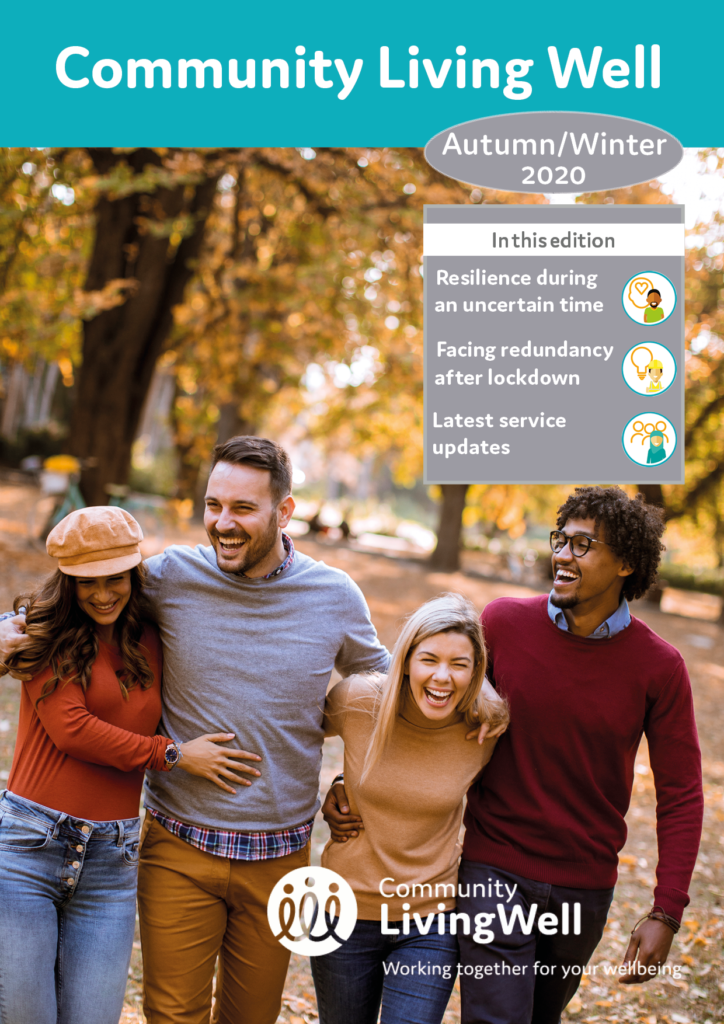Latest News
Emotional support in your language

Self-Care is an approach to health and wellbeing which helps you to keep yourself well. The Community Living Well self-care programme helps people to take more control of their mental health and physical wellbeing, and to build social contact access to community, leisure, education, arts and volunteering opportunities. There is a range of different Self-Care services that can be accessed through Community Living Well.
One-to-one emotional support in your language
One of the self-care services run by the BME Health Forum is one-to-one emotional wellbeing and support in languages such as Arabic, Farsi, French and Somali. They provide emotional support and help with practical problems, including help to access other services.
Alex used this service in his time of need. This is his story…
Spiralling out of control
After his divorce, Alex (around 50 years of age) felt isolated, low in mood, and started ignoring letters sent to his address. His health and wellbeing were spiralling out of control and his only relative, his sister, had not made any contact for more than seven years.
Finding the courage
He found out about the Community Living Well programme through someone who attends his local Mosque and was encouraged with the level of support they received. Alex managed to get the courage to attend.
He attended sessions to get support with his on-going challenges such as arrears and housing situation. Due to his ill mental health, he had failed to realise that his rent arrears were now getting out of hand and he was at risk of being evicted – he did not know where to go or what to do.
Comfort and support
Our staff provided comfort and support to Alex when he attended his first session, as he was restless while the matter was still unresolved. Our adviser contacted Alex’s local housing office on his behalf, arranged extra time and set up a repayment agreement, making it easier for Alex to manage his debt.
At Alex’s meetings, he and the adviser set realistic goals for him to work towards, including sorting any mail he received so he felt more organised.
Making progress
Alex made good progress at his fortnightly meetings. He reached his goals and kept up with his repayment agreement. He was more engaged and started to set more goals that he could work towards.
Alex described how the service was instrumental in helping him make progress:
“I couldn’t praise them enough. With my problem, I do not meet people regularly as sometimes they are not so understanding or interested in what I say. I had to hide my difficulties and thought my problem would disappear, but it got worse. So, I turn up at this place, tell these people I need help at first meeting and felt a sense of relief as there is a young man (project leader) who is just so calm and caring, saying ‘anything you need, don’t worry.’”
HOW TO REGISTER
To refer yourself to the Self-Care programme, please fill out this online form or call us on 020 3317 4200.
This article was originally published in the Autumn/Winter 2020 edition of Community Living Well magazine. To subscribe to receive the magazine, complete this form.
Author: Stewart Gillespie
Category: Community Living Well, Self-Care
Posted on: 24th February 2021
How Peer Support groups can help you
What is Peer Support?
Peer support is when people use their own experiences to help each other. Community Living Well Peer Support is available to people over 16 who experience mental health problems whilst under the care of their GP, and their carers.
It can support you if you want to:
- feel less isolated
- increase your confidence
- get or give support and talk to others who understand your mental health problems through a shared experience
- be more knowledgeable about your mental health
The current situation…
Although the Peer Support team cannot provide our usual face-to-face meetings and groups at the moment, our wellbeing services have continued to support people online. Feedback from people using these new services has been extremely positive.
We want to reassure you that if you are struggling, we can help. Whether it is online for now, or face-to-face when things return to normal, our sessions still provide a place to meet new people and share your feelings without judgement.
Don’t take our word for it – here are some of the things that people have said about their experience with Peer Support…
“My therapist referred me to Peer Support. It has helped me a lot to make progress in areas of my life. I’ve been given helpful information from the Peer Support staff and, step by step, I’m doing more things. I have recently contacted a volunteering service that they gave me information about.”
“I am new to Peer Support. Very, very good experience – made me smile and it was nice to talk to others with similar issues – it made me feel more understood, like I’m not the only one. Good mix of people.”
“It’s the best service I’ve ever been to – it’s amazing. Sometimes people can spend days without talking. Amazing staff, very kind. And I have spoken to some really nice people there.”
“I can’t thank you enough! I didn’t realise how isolated I was before I joined Peer Support. I’ve been making terrific friends, having lots of laughs and coffee breaks. I am more relaxed and I’ve been having a ball of a time! Everything is organised to perfection, and I always leave [a group] on a high! The staff are incredibly dedicated and send such lovely texts – it’s great to feel part of a community.”
“I wanted to let you know how much I enjoy the Zoom meetings. They really are a lifesaver as they give me a reason to get up. The Mental Health Support Group helps me learn new ways of trying to cope with these very scary times, and I also very much enjoy the Quiz and Art Groups – they help cheer me up and take my mind off my problems. Thanks for all your great work and please keep the Zoom meetings up and running to help so many of us through these very difficult times.”
How to register
To refer yourself to the Peer Support service, please fill out this online form or call us on 020 3317 4200.
See our upcoming events and meetings.
This article was originally published in the Autumn/Winter 2020 edition of Community Living Well magazine. To subscribe to receive the magazine, complete this form.
Author: Stewart Gillespie
Category: Community Living Well, Peer Support
Posted on: 17th February 2021
Rethink your fitness goals

You’re not alone in thinking that this lockdown is tougher than the last. Due to the winter weather, you may find you’re spending more time in your pyjamas, curled up in front of the TV with your favourite comfort food. Finding the motivation to exercise is harder than ever, so it might be time to rethink your fitness goals.
A study by University College London has found that 40% of people are doing less exercise this time around, compared to the last lockdown in spring 2020. (Source: University College London 2021)
Last year, people were finding new ways to stay active, taking advantage of the warm weather to be outside for long walks, runs or cycle rides. But now the novelty has worn off.
Make small changes
There are some small changes you can make to try to incorporate some activity back into your routine.
Try things that take minimal effort – going for a walk is easy as you don’t have to change your clothes or find additional equipment.
Change your fitness goals – working out to lose weight or get fit are long-term goals, which feel too far away at the moment. However, if your goal is to feel better, you will feel this straight after each exercise.
Don’t compare yourself to others – many people share their workout achievements on social media, which can make you feel bad about yourself. Everyone is different, so just focus on you!
Find what works for you – not all of us are runners and weightlifters! Put some music on and dance around your kitchen, find a HIIT workout on YouTube (there are loads!), or do some simple stretches.
Anything that allows you to move your body for a little while will make you feel better, and not just physically – you’ll also feel a great sense of achievement, so you can pat yourself on the back and say, ‘I did it!’
Be kind to yourself
We’ve said it before, but don’t be hard on yourself! We have never experienced a situation like this before, so none of us know how to deal with it properly.
Try to do one thing each day to make yourself feel better – phone or text a friend or family member for a chat, watch your favourite ‘feel good’ movie, treat yourself to nice food, or do a bit of exercise.
Extra support
However, if you are struggling and feel like you need extra support, you can refer yourself to Community Living Well. Take a look at our services and find something that works for you, then complete this online form, or speak to your GP and they can refer you.
Author: Stewart Gillespie
Category: Community Living Well
Posted on: 3rd February 2021
Housing regulations: do the changes affect me?

Housing regulations: What’s changed and how does it affect me?
Dealing with changing housing regulations can be extremely stressful. Our Navigators have provided some information and advice to support you during this difficult time.
During the first lockdown in Spring/Summer 2020, the Government put measures in place to protect tenants from eviction. These were lifted on 20 September 2020, meaning the courts could hear applications for repossession orders.
The same protection has been put in place for the latest national lockdown, meaning renters will continue to be protected from eviction.
The extension to the legislation ensures that bailiffs do not serve eviction notices, except in the most serious circumstances. The only exceptions to this are illegal occupation, false statement, anti-social behaviour, perpetrators of domestic abuse in the social sector, where a property is unoccupied following death of a tenant and serious rent arrears greater than 6 months’ rent.
This legislation will be in place until the end of 21 February 2021 and will be kept under review.
Read the latest guidance for landlords and tenants at GOV.uk
If you Receive Notice
Receiving a notice to quit can be very scary but there are things you can do and help is available. It is important not to ignore the notice but to seek help as soon as you receive it. Your local council has a duty to prevent homelessness so you can approach them for support. They will check the validity of the notice document and can offer to negotiate with your landlord, perhaps to agree a payment plan if there are rent arrears, so you can stay in the property, or help you find somewhere else to live.
If your social housing landlord is serving notice due to rent arrears or ASB you can negotiate a repayment plan with them to reduce the arrears or enter into an ASB agreement. This will allow you to stay in the property as long as you abide by the agreement.
If you are experiencing some of the issues mentioned…
The Navigation team are currently working remotely and are not taking face-to-face appointments but they may be able to support you remotely via telephone and online services.
To refer to our Navigator service, please complete this online referral form or call 020 3317 4200.
This article was originally published in the Autumn/Winter 2020 edition of Community Living Well magazine. To subscribe to receive the magazine, complete this form.
Author: Stewart Gillespie
Category: Community Living Well, Navigator
Posted on: 22nd January 2021
Be kind to yourself during winter lockdown
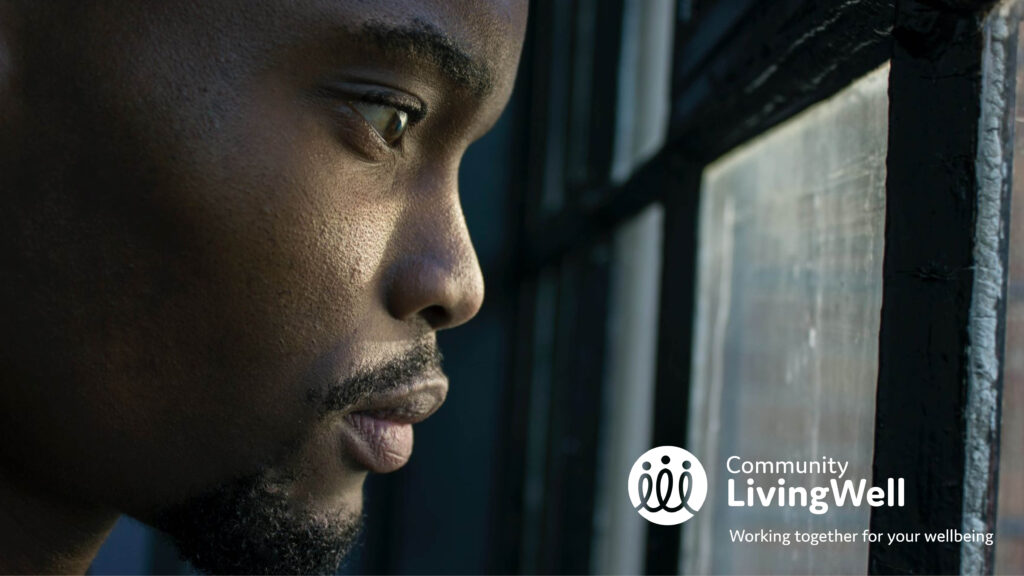
As we find ourselves in another complete lockdown and are told to ‘stay at home’ to help stop the spread of coronavirus, many of us may find our mental health is deteriorating. It is important to be kind to yourself, so we have rounded up some information, tips and advice on how to cope with certain situations during this time.
Take care of your mental health
You may be getting bored of hearing the same messages like ‘go for a walk’ or ‘learn a new skill’, but activities like this really can help if you’re feeling a certain way.
Get as much sunlight, fresh air and nature
It is scientifically proven that fresh air and natural light can help improve your mood, reduce feelings of stress or anger, and make you feel more relaxed. If you can, go outside for a walk and take in the sights, smells and fresh air.
If you can’t or don’t want to go outside, try opening your windows for a while to let the air in. Listen to natural sounds, like bird song or rainfall – there are apps you can download or videos to watch on YouTube. Spend time in your garden if you have one, or take a break and sit on your front doorstep.
Find ways to fill your time
It’s easy to get bored when you’re stuck indoors so try to find ways to spend your time. You could do some of the things around the house you’ve been meaning to do for ages but never had the time, like having a clear-out or a spring clean.
Relax, read a book or watch TV. It’s ok to relax as well, so don’t be hard on yourself if you decide to do nothing!
Try to keep active
If you can, try to build physical activity into your daily routine. It could be something as simple as walking up and down the stairs or dancing to music. When we feel good physically, we tend to feel more positive and better about life. When we exercise, chemicals such as serotonin and endorphins are released which help to naturally stabilise and lift our mood and improve sleep.
Get a good night’s sleep
If you are struggling to get to sleep because of anxiety or worry about the current situation, try to maintain a regular sleeping pattern and keep up good sleep hygiene practices such as avoiding screens before bed, cutting back on caffeine and creating a restful environment.
Be kind to yourself
It is important to remember that we have made it this far. Since COVID-19 became part of our lives, we have all had to learn and adapt to new ways of living.
Although it might not feel like it, you have achieved more in this past year than you think:
- you’ve adapted
- you’ve shown strength and determination
- you’ve been resilient and patient
They are achievements that you can be proud of.
Other useful information
Seasonal Affective Disorder (SAD) – The advice above can also help if you’re suffering with SAD. Fewer daylight hours plus cold and wet weather means that we can’t spend as much time outside as we did in the first national lockdown. You may feel low in mood and lack motivation.
Read more about SAD, its effects and how to treat it.
Parenting during the pandemic – Having the kids at home can cause more worry for parents if you’re having to juggle working with home-schooling and childcare.
Read our article about parenting during the pandemic, with tips and advice.
Author: Stewart Gillespie
Category: Community Living Well
Posted on: 12th January 2021
Resilience During Uncertain Times
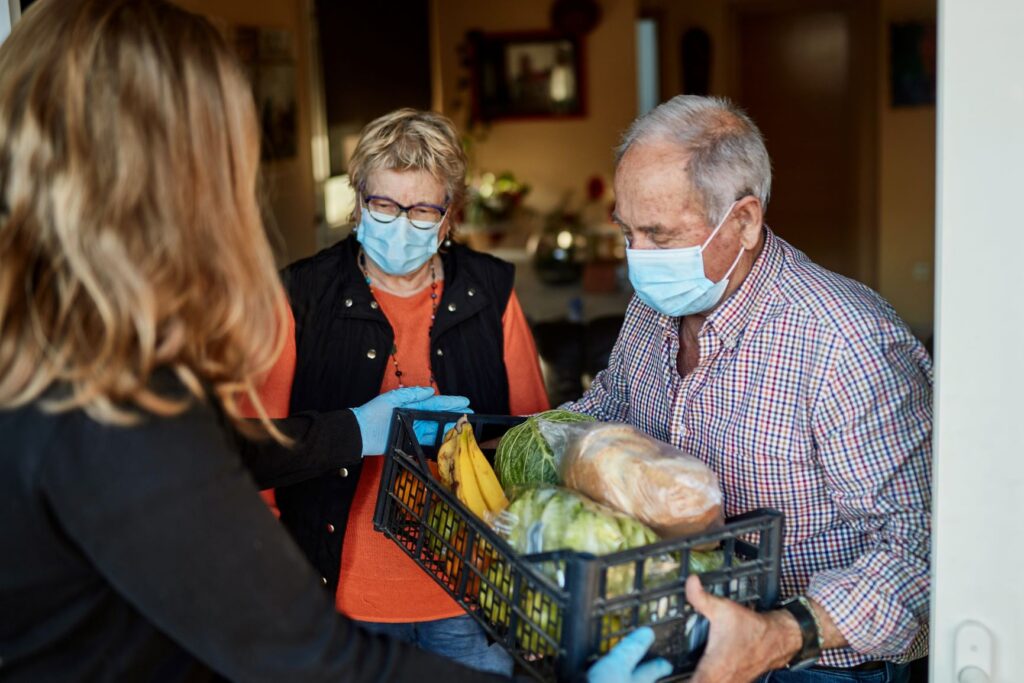
The challenges we’ve faced this year have been extremely tough. The coronavirus pandemic was completely unexpected, and we’ve all had to adapt to a new way of living, whilst trying to remain strong, determined and patient. If you are struggling with your mental health, this uncertainty can bring even more stress and fear.
Our Community
Throughout this hard time, it has been wonderful to see friends and family pulling together to support one another and help the community. In Kensington and Chelsea, many voluntary and community organisations, as well as individual volunteers, have been working non-stop to provide people in the community with invaluable support.
We want to highlight the work of some of these incredible people, and say a huge ‘thank you’ to our voluntary heroes…
SMART (St Mary Abbotts Rehabilitation & Training)
SMART begun its food distribution service the day before lockdown started and during their busiest week, they distributed over 270 bags of food. SMART’s neighbours were incredible, popping in to donate food, money or deliver bags. SMART say they were particularly grateful to two young people and their mum who came every week to help out after they had finished their home-schooling.
Director of SMART, Amelia, said, “It has never been just about the food. After every long day of deliveries we would get a flurry of calls, emails and texts from people – ill, frightened, alone – whose world had been brightened by the brief human contact that they had from our volunteers.”
NHS Responders
NHS Responders are a national group of volunteers who provide support to anyone who is shielding, vulnerable, self-isolating or who has caring responsibilities. The volunteers provide various services, including telephone calls to check-in or give support, collection of shopping, medication or other essential supplies, and transport.
Throughout May and June, West London CCG had a total of 2,193 volunteers, who provided 7,698 tasks to 1,345 individuals.
Mutual Aid
Nathan Cooper, Mutual Aid Kensington and Chelsea Volunteer Coordinator, told us about the work they have been doing to help the community:
“In early March, Mutual Aid Kensington and Chelsea was created as a platform to enable neighbourliness in the RBKC. We realised that in this period of unprecedented and uncertain crisis, all residents – regardless of their background – would be affected. Our primary aim was to ensure we could support neighbours to: be kept well fed, have the medicine they need, not have to endanger their vulnerable loved ones by leaving the house, not have to feel alone, and to be able to feel like there’s someone out there listening and looking out for them.
To ensure we were as close to the ground as possible, we formed eight decentralised areas across RBKC, each with its own online communication channels and telephone number so neighbours seeking support could be connected with those offering their time to help out. During the peak of the pandemic, Mutual Aid welcomed around 15,000 volunteers making dozens of food deliveries, running essential errands, and providing health and wellbeing support, working in every RBKC ward, every day. In one ward alone, over 300 calls have led to over 150 support requests being dealt with, all whilst striving for the highest standards of safeguarding and confidentiality.”
To find out how to support Mutual Aid or receive support, please visit MutualAidKC.com or drop us a line on [email protected]
Volunteer Centre Kensington & Chelsea
During the first few months of the pandemic, VCKC received over 2,000 registrations from potential volunteers wanting to help the community. Ahmed was one of those people, and here is his story…
When Ahmed first came to Wellbeing at VCKC (the Volunteering on Prescription team) he was struggling with depression and isolation after having to give up his job due to a health condition. He started to come to community volunteering taster days and to volunteer regularly at his local library and started to feel much happier.
During lockdown, starting in March 2020, he started to feel very isolated and depressed again. Wellbeing phoned Ahmed to assess his needs and started regular Welfare Check phone calls with him. They also liaised with his GP, who was monitoring him carefully. As his mood improved, he has been able to become a wellbeing volunteer and has been helped to access interactive online workshops, such as relaxation, art, and ‘Cook & Chat’. They have also been able to give him some tech support so that he can access his phone therapy sessions.
Recently Ahmed has been helped to facilitate an online wellbeing art workshop. This utilises his artistic skills, which were noted at his initial assessment, and has given him a focus, purpose and sense of pride and satisfaction.
Ahmed said: “I feel more hopeful about the future, I feel very happy. Since I met these people at the Volunteer Centre Kensington and Chelsea, I feel much better.”
Volunteering on Prescription
Volunteering on Prescription is a self-care programme that helps you meet people, share skills and interests and improve your wellbeing through volunteering tailored to your needs. The Volunteer Centre Kensington and Chelsea builds your programme around you and what you like. There is a range of different Self-Care services that can be accessed through Community Living Well.
You can refer to the Self-Care service by completing this online form or call 020 3317 4200.
This article was originally published in the Autumn/Winter 2020 edition of Community Living Well magazine. To subscribe to receive the magazine, complete this form.
Author: Stewart Gillespie
Category: Community Living Well, Self-Care
Posted on: 9th December 2020
Alone in a Digital World

We are living in a fast-paced digital world, where almost everything is now online, including banking, shopping and advice. For many, this is a good thing, as it means faster access to services and instant responses to some requests. But what if you cannot get online? We’ve taken a look at some of the reasons why people can’t get online and provide some tips on how to stay connected if you are feeling excluded.
Digital Exclusion
The recent lockdown has highlighted a major divide in our society, with millions of people unable to access critical online services, and millions more restricted by pay-as-you-go services. This digital exclusion can have an impact on your mental state if you are worried about missing out on vital services such as healthcare, education and benefits.
Did you know…?
13% of UK adults do not use the internet
10% of UK households do not have internet access
65% of smartphone users agree that it is more difficult to complete forms on their smartphone than on a computer
53% of internet users aged 65+ are less likely to bank online
(Source: Ofcom Adults’ Media Use and Attitudes’ report 2020)
Restrictions to access
There are many reasons as to why people do not access the internet:
Accessibility: they might not have access via broadband, WiFi or mobile. Even if they do have an internet connection, they may not have a computer, smartphone or tablet.
Confidence: some are afraid of doing something wrong, lack trust or fear being caught out in an online scam.
Motivation: some people simply do not want to go online.
During lockdown, those with no internet connection or who could not afford to keep topping up pay-as-you-go accounts, were left shut in their homes, socially isolated with no means of contacting anyone in the outside world.
I can’t get online and it’s making me anxious. What can I do?
If you cannot access the internet easily and you’re feeling excluded, support is available.
Make a call
Many services still operate a telephone service – lines may be busier than usual during the pandemic, but you can still get through to speak to someone. Just be patient or try to call at different times during the day.
Seek help or training
Many organisations such as Housing Associations, Local Authorities, Job Centre Plus, and regional health associations can often provide advice, guidance or training.
Ask someone
Find a trusted source – seek help from a friend, family member, carer or health worker. Ask them if you can use their internet access sometimes, or get them to teach you how to use the technology properly.
Other useful information…
This story ‘Alone in a Digital World’ was originally published in the Autumn/Winter 2020 Community Living Well magazine. It has been edited for website purposes. Subscribe today to receive mental health and wellbeing tips straight to your inbox, twice a year!
If you need additional support, you can refer to the Community Living Well service here.
Author: Stewart Gillespie
Category: Community Living Well
Posted on: 2nd December 2020
Autumn/Winter 2020 magazine is now available!
Welcome to the Autumn/Winter 2020 edition of the Community Living Well magazine. We hope you have been keeping safe and well during this difficult time.
The situation regarding Covid-19 and lockdown is changing all the time, which is bringing a lot of uncertainty to our lives. We wanted to include articles that provide practical help and advice on issues that many of us may be dealing with at the moment.
We’ve written an article about suicide prevention to highlight how important it is to talk openly about this – a subject that many of us find challenging. It is vital that we are aware of our own wellbeing, as well as the wellbeing of those around us.
Throughout the pandemic, people have shown courage and resilience – there have been many positive stories to tell, so we focus on some of the incredible voluntary organisations that have helped our community. We also tell you about the ways in which we are continuing to support people using Community Living Well services.
Plus…
The Community Living Well magazine includes information on what to do if you are facing eviction from your home, or if you have been made redundant from your job since lockdown.
If you have any suggestions, features, stories or feedback about the magazine, please contact me, Stewart, at [email protected].
Community Living Well is a mental health service for those registered with a GP in the Royal Borough of Kensington and Chelsea, or the Queen’s Park and Paddington areas of Westminster. The services on offer include talking therapies, support groups, help with employment and support with debt, housing and benefits issues. Self-referrals can be made here. For more information please call 020 3317 4200.
Author: Stewart Gillespie
Category: Community Living Well
Posted on: 6th November 2020
Employment During Second Lockdown
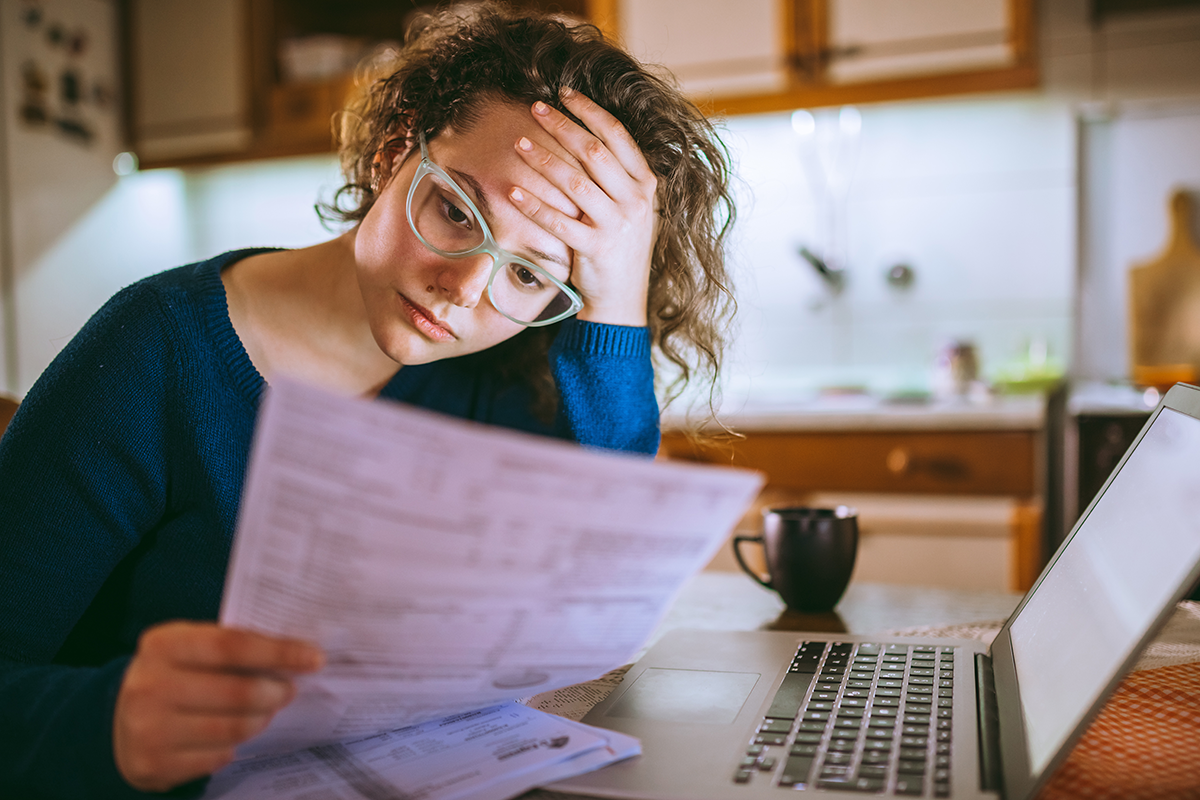
Now that we have entered the second national lockdown of the year, many of us are feeling worried or anxious about the uncertainty of COVID-19 and the affects it is having on our lives. One of the biggest worries comes if you cannot work due to the lockdown restrictions, so we’ve compiled the latest information about furlough, tips on how you can find temporary work and where you can find additional support during lockdown.
GOVERNMENT SUPPORT FOR WORKERS
On Thursday 5 November 2020, the government announced that it would be extending its furlough scheme into Spring 2021, giving businesses and people support during lockdown in the winter months.
The Coronavirus Job Retention Scheme (CJRS) will now run until the end of March with employees receiving 80% of their current salary for hours not worked.
Similarly, if you are self-employed, support through the Self-Employment Income Support Scheme (SEISS) will be increased, with the third grant covering November to January calculated at 80% of average trading profits, up to a maximum of £7,500.
ADDITIONAL SUPPORT
The government also announced that cash grants of up to £3,000 per month are available for businesses which have to close during lockdown, and the mortgage payment holiday for homeowners has also been extended.
For all of the information about the latest announcement, visit gov.uk
LOOKING FOR WORK DURING THE CORONAVIRUS PANDEMIC
Although some businesses have been forced to close until further notice, there are still some who continue to operate by working from home or are considered essential roles.
For non-essential roles, your interview would likely be over the phone or video call. For essential roles such as supermarket assistants, the interview would be face-to-face.
Get in touch with our employment team for some interview tips.
WHERE CAN I FIND WORK?
There may be job opportunities in essential services that must continue to operate during lockdown. Supermarkets might be looking for store assistants, delivery drivers and warehouse workers; you can find opportunities on individual company websites. The NHS have been keen for retired nurses, doctors and healthcare assistants to return, as well as those interested in roles such as porters, cleaners, bed buddies, ward helpers and support workers. These roles are advertised on the NHS Jobs website. Other essential roles include food delivery drivers for companies like Uber Eats and Deliveroo to service those who are self-isolating.
For support with your mental health and wellbeing…
If you are struggling with anxiety, stress or low mood and you feel you need extra support, you can refer yourself to the Community Living Well service here.
Author: Stewart Gillespie
Category: Community Living Well, Employment
Posted on: 6th November 2020
Latest Workshops and Groups
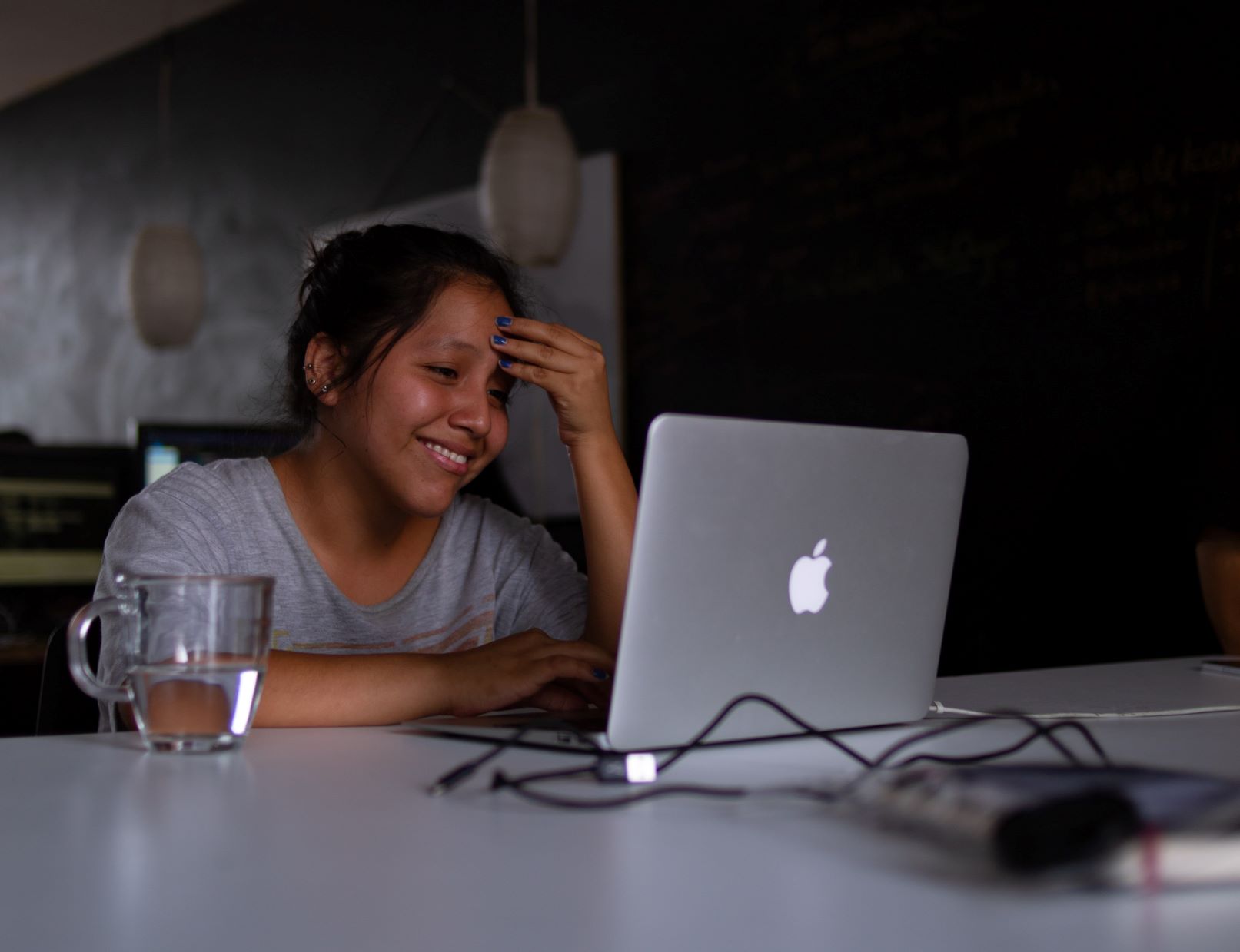
Although we can’t offer our usual face-to-face meetings at the moment, our Talking Therapies and Peer Support teams are offering online alternatives. There is a range of groups, workshops and webinars for you to get involved in if you are feeling anxious, stressed or isolated.
Living Well Workshops
These weekly workshops provide a safe and supportive space to develop skills and knowledge to manage the stresses and difficulties in your life. Each session is different, covering a variety of subjects related to your wellbeing, including Getting a better night’s sleep, Self-care for anxiety, Relaxation and wellbeing, Food and mood, and Stress and wellbeing.
Mental Health Peer Support Groups
These weekly online groups bring people together to give and receive mutual support in a peer support setting, to help manage daily stresses. It’s your chance to talk about your mental health, an opportunity to learn about how others in similar situations manage their symptoms and connect with people who know what it’s like to feel the way you do.
Talking Therapies (IAPT) Webinars
These 4-week courses include Understanding Trauma: supporting clients in having a better understanding of PTSD and to manage symptoms of PTSD that they may be experiencing; Stress Less: supporting clients in understanding generalised anxiety and how it can impact us on a daily basis; and Step Forward: using CBT techniques to increase levels of physical activity in order to reduce symptoms of depression and anxiety.
You can find full details of these and many more upcoming groups on our Events page.
To attend these groups and workshops, you must be registered with Community Living Well. You can refer yourself by completing this online form, or call us on 020 3317 4200.
Author: Stewart Gillespie
Category: Community Living Well, Peer Support, Talking Therapies
Posted on: 29th October 2020


